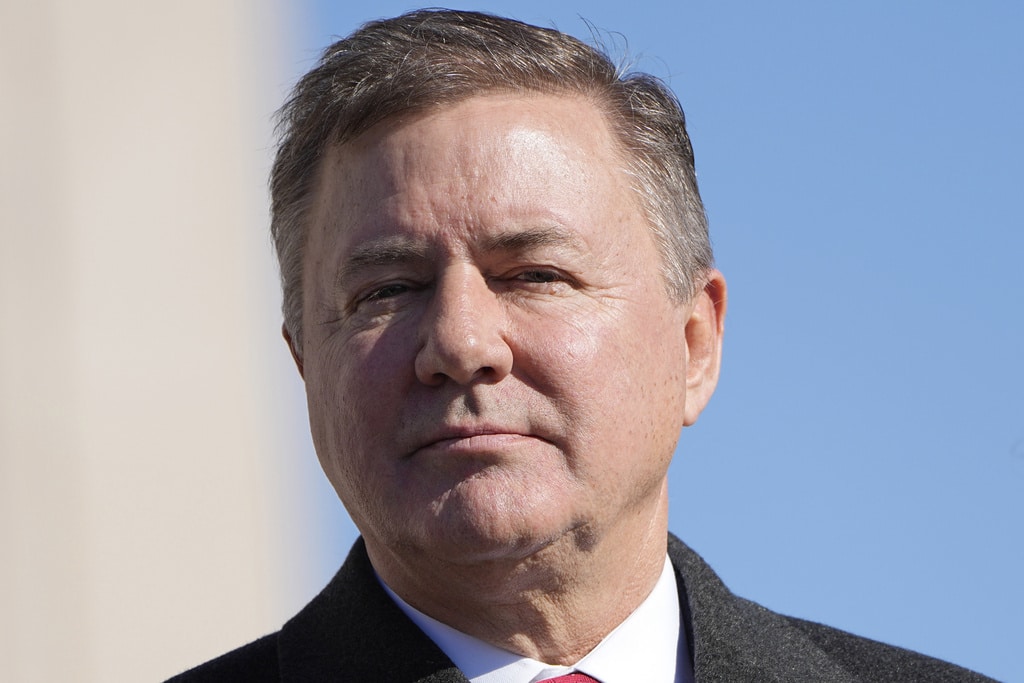Recent years have witnessed the proliferation of public charter schools, which are privately managed but government funded and which are designed to increase school choice and student performance.
To date, all publicly funded charter schools have been nonsectarian, but in 2024 the Oklahoma Virtual Charter School Board extended a contract to St. Isidore of Seville Catholic Virtual School, which is controlled by the Roman Catholic Church.
Gentner Drummond, the state attorney general, challenged this contract. And in Drummond v. Oklahoma Statewide Virtual Charter School Board, a majority of the Oklahoma Supreme Court declared the contract to be unconstitutional.
The Oklahoma Supreme Court majority relied on both the state constitution and on the First Amendment to the U.S. Constitution to invalidate this agreement with a charter school that it found “to be sectarian in its programs, admissions policies, employment practices, and operations.”
Oklahoma's constitution bars public funding of religious entities, court ruled
Article 2, Section 5 of the Oklahoma Constitution provides that:
No public money or property shall ever be appropriated, applied, donated, or used, directly or indirectly, for the use, benefit, or support of any sect, church denomination, or system of religion, or for the use, benefit, or support of any priest, preacher, minister, or other religious teacher or dignitary, or sectarian institution as such.
In interpreting this law, the justices in the majority opinion written by Justice James R. Winchester, relied in part on an earlier decision that it was improper to require the placement of a monument honoring the Ten Commandments on the state capitol grounds. The court concluded that the state constitutional prohibition had been clearly designed to prevent state monies from going to religious entities. In so doing, the drafters, many of whom were religious, were seeking to enforce separation of church and state.
Winchester did not believe, however, that this provision was one of the so-called Blaine Amendments that were directly aimed at preventing state funding of parochial schools. He did believe that providing funding to a sectarian charter school “would create a slippery slope and what the framers’ warned against — the destruction of Oklahomans’ freedom to practice religion without fear of governmental intervention.”
Although the state constitution provided for free public schools, it did so on the basis that they would be “free from sectarian control.” By contrast, St. Isidore was clearly owned and operated by the Catholic Church with the purpose not only of providing a secular education but also evangelizing students.
Court: St. Isidore was a governmental entity and state actor

Oklahoma Attorney General Gentner Drummond challenged a charter school contract with a Catholic school that was granted by the state's charter school board. The Supreme Court ruled that the state constitution bars creating a state-funded religious charter school, and that such an arrangement also violates the establishment clause of the First Amendment. (AP Photo/Sue Ogrocki, File)
Although the state’s charter school board had sought to treat St. Isidore as a private corporation contracting with the state to provide a public service, the majority did not agree.
It distinguished cases that had provided scholarships for students to attend parochial schools on the basis that these had resulted from parental choices and did not go directly to the parochial schools in question. Charter schools are “creatures of state law and may only operate under the authority granted to them by their charters with the State. St. Isidore will be acting as a surrogate of the State in providing free public education as any other state-sponsored charter school.”
In applying tests that the U.S. Supreme Court had used to identify state actors, the Oklahoma Supreme Court concluded that St. Isidore fell both under “the entwinement and public function tests” and cited cases that it thought supported this view.
St. Isidore violated the First Amendment Establishment Clause
Although the Oklahoma Court believed that it had established independent state constitutional grounds for its decision, it argued that the Establishment Clause of the First Amendment to the U.S. Constitution further bolstered its case. It specifically cited the Supreme Court decision in Everson v. Board of Education (1947), which upheld a state provision for bus services to parochial school students while ruling that a state cannot adopt laws “which aid one religion, aid all religions, or prefer one religion over another.”
Court: The Free Exercise clause does not apply
The Oklahoma justices further argued that the Free Exercise Clause of the First Amendment to the U.S. Constitution and cases seeking to make public benefits equally available to individuals regardless of their religious views, did not apply because St. Isidore was a “state-created school that does not exist independently of the state” but was created specifically to provide education.
Dissenting opinion: State charter did not violate 'no aid' provision
Justice Dana Kuehn wrote the dissenting opinion in this case. She did not believe that allowing a state to contract with a private entity violated the “no aid” provision of the state constitution.
She focused on the fact that “St. Isidore would not be replacing any secular school, only adding to the options available, which is the heart of the Charter School Act. Simply put, requiring the state to fund non-sectarian education is not the same as allowing some funds to flow to sectarian education programs.”
Kuehn thought what the state was doing was simply contracting for educational services, much as it had previously contracted with religious entities to provide an orphanage. She rejected the idea that an entity became a state actor simply because the state had licensed it.
Relying in part on the U.S. Supreme Court decision in Trinity Lutheran Church of Columbia, Inc. v. Comer (2017), which upheld the use of governmental funds for playground enhancement of a parochial school, and Espinoza v. Montana Department of Revenue (2020), which upheld the use of state-funded scholarships to parochial schools, Justice Kuehn viewed the requirement that schools be sectarian in order to receive state funds constituted the imposition of a disability on the result of religious status. She believed that St. Isidore had the same right to seek state funding as any other charter schools.
Future directions
Although neither side appears to have cited the case, the U.S. Supreme Court decision in Kennedy v. Bremerton School District (2022) provides critical background for understanding this case. In that decision, upholding the right of a public-school football coach to offer a prayer on the field after games, the majority had abandoned the Lemon Test, which it previously often applied in Establishment Clause cases.
The case is further complicated by the majority’s independent reliance on the state Constitution.
The Oklahoma Supreme Court's decision was appealed to the U.S. Supreme Court, which affirmed the state court ruling on May 22, 2025, after dividing 4-4 without revealing the breakdown. Justice Amy Coney Barrett did not participate in the case, but did not explain why.
Some believe the issue could return to the Supreme Court with all nine justices participating.
John R. Vile is a political science professor and dean of the Honors College at Middle Tennessee State University.

